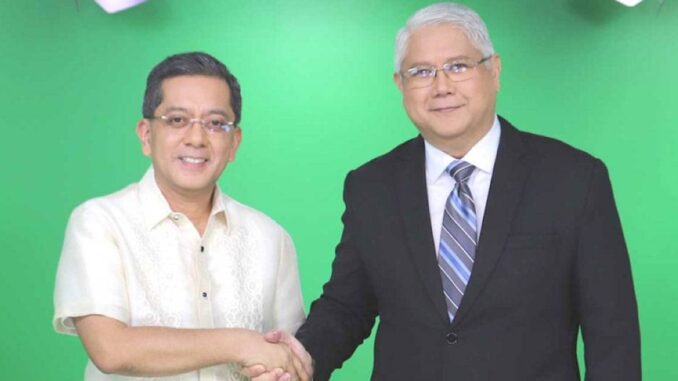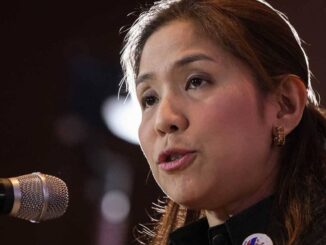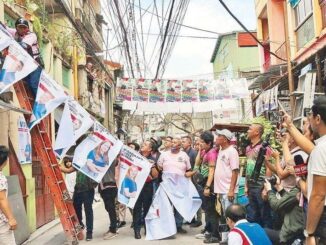
COMMISSION on Elections (Comelec) Chairman George Garcia said the poll body will tighten its oversight of social media during the 2025 midterm election campaign, introducing a series of stringent measures aimed at ensuring transparency and accountability in the digital realm.
In an exclusive interview with Dante Francis Ang II, The Manila Times chairman and CEO, on the program “Chairman’s Report” aired on IBC-13, Garcia said among these is a requirement for all candidates and their campaign teams to register their social media accounts by Dec. 30, 2024.
He said failure to comply could result in disqualification from the elections, marking a significant escalation in the poll body’s regulatory approach.
In outlining the new measures, Garcia emphasized the role of social media in modern electoral campaigns and the need to safeguard the integrity of information being disseminated online.
“We have seen in recent years how social media can be used to manipulate public opinion, spread misinformation, and circumvent campaign finance regulations,” he said. “This time, we are taking proactive steps to address these issues head-on.”
Garcia stressed that the registration mandate, which applies to both candidates and campaign staff, is part of a broader effort to create a more level playing field in an increasingly digital landscape.
Commission on Elections Chairman George Garcia (left) with The Manila Times Chairman Dante Ang II. PHOTO BY JOHN ORVEN VERDOTE
Registered accounts will be monitored by the Comelec’s new Cybersecurity and Campaign Monitoring Unit, which will track online activity, ensuring compliance with election rules, including limits on campaign spending and the prohibition of negative or defamatory content.
Garcia added that the initiative reflects the poll body’s commitment to transparency.
“We want to make sure that every online post, advertisement, and promotion is traceable to an authorized campaign account. This prevents the misuse of anonymous or fake accounts and holds candidates accountable for the information they release,” he said.
Under the new policy, any candidate or political organization that fails to register their social media accounts by the December 30 deadline faces the harsh penalty of disqualification. This rule applies not only to official campaign accounts but also to any personal accounts used by candidates or their staff to promote their candidacy.
“Disqualification is a severe consequence, but it’s necessary to enforce discipline in the use of social media during the election period,” Garcia said. “We are giving all parties ample time to comply, but we will not hesitate to take action against those who disregard this requirement.”
To support these efforts, Comelec plans to collaborate with social media platforms, including Facebook, X (formerly Twitter) and YouTube, to monitor advertisements and other content related to the elections.
These partnerships are expected to streamline the detection of violations and provide Comelec with real-time access to campaign data.
The 2025 midterm elections, which will determine the composition of half of the Senate, the entire House of Representatives and thousands of local government posts, are expected to see an unprecedented surge in digital campaigning.
With an electorate that increasingly consumes information through social media, online platforms have become critical battlegrounds for shaping public opinion.
Political analysts suggest that Comelec’s new measures reflect the evolving nature of electioneering in the Philippines.
Despite the new rules, some candidates have expressed concerns about the potential for overregulation.
While Comelec’s move has been widely praised for its focus on accountability, some questions remain about how effectively the new measures can be enforced.
Ensuring that every social media post is compliant with election laws could prove challenging, especially given the sheer volume of content generated during campaigns.
To address these concerns, the Comelec said it is working on increasing its technical capabilities.
It plans to hire additional personnel for the Cybersecurity and Campaign Monitoring Unit and invest in advanced tracking software that can analyze social media traffic and detect anomalies.
The 2025 elections will be a test of the Philippines’ ability to adapt to the changing dynamics of political campaigning in the digital age.
With social media playing an ever-larger role in shaping public perception, the Comelec’s new regulations signal a firm commitment to ensuring fairness and transparency.
The challenge now lies in the successful implementation of these rules, and in balancing the demands of free expression with the need for responsible digital campaigning.
As the December 30 registration deadline looms, candidates are urged to prepare for stricter scrutiny and to ensure full compliance with Comelec’s directives.
The stakes are high, and the Comelec is determined to keep the electoral process above reproach.
“We are ready to enforce these rules,” Garcia said. “The future of our democracy depends on it.”





Be the first to comment